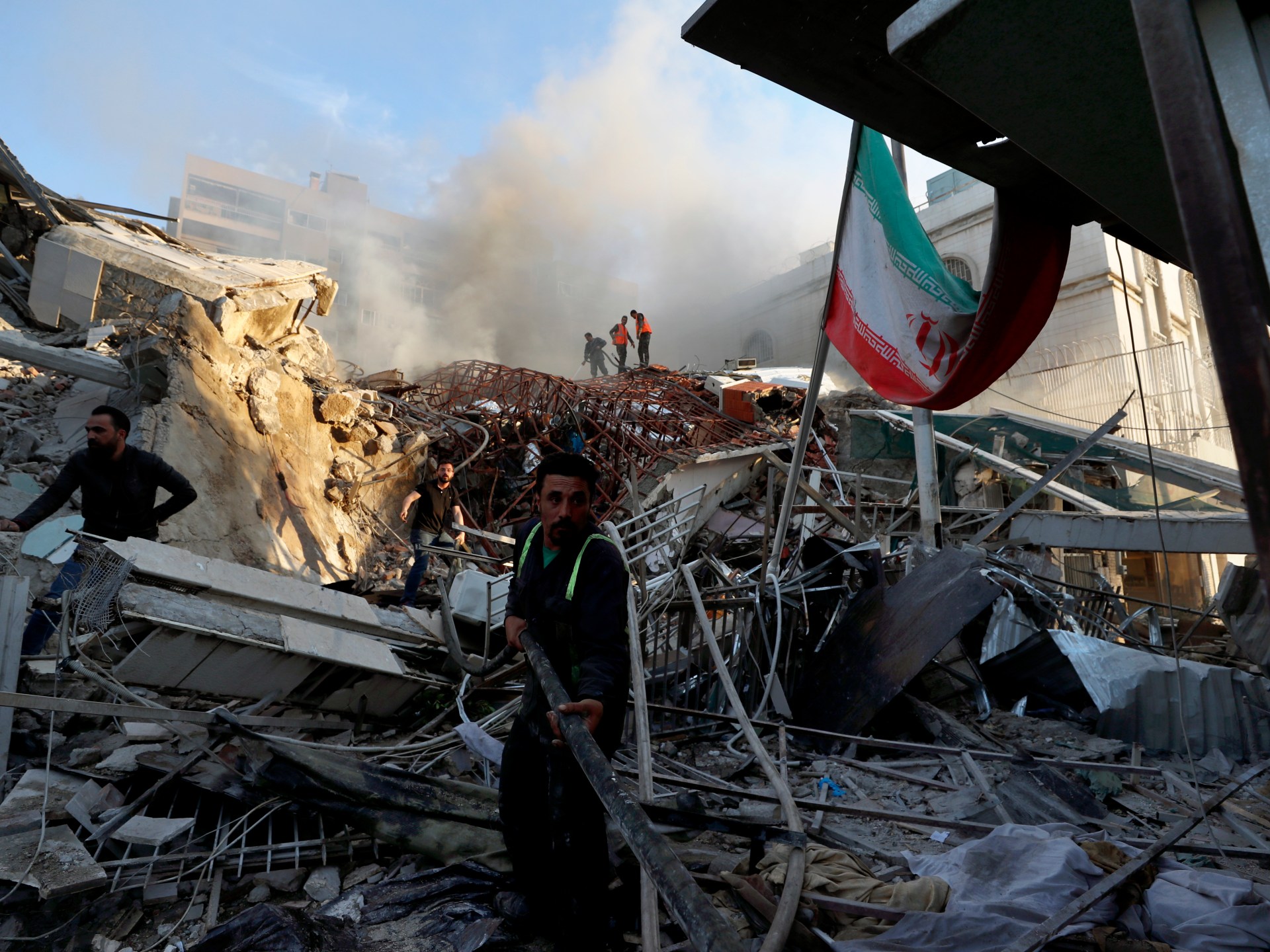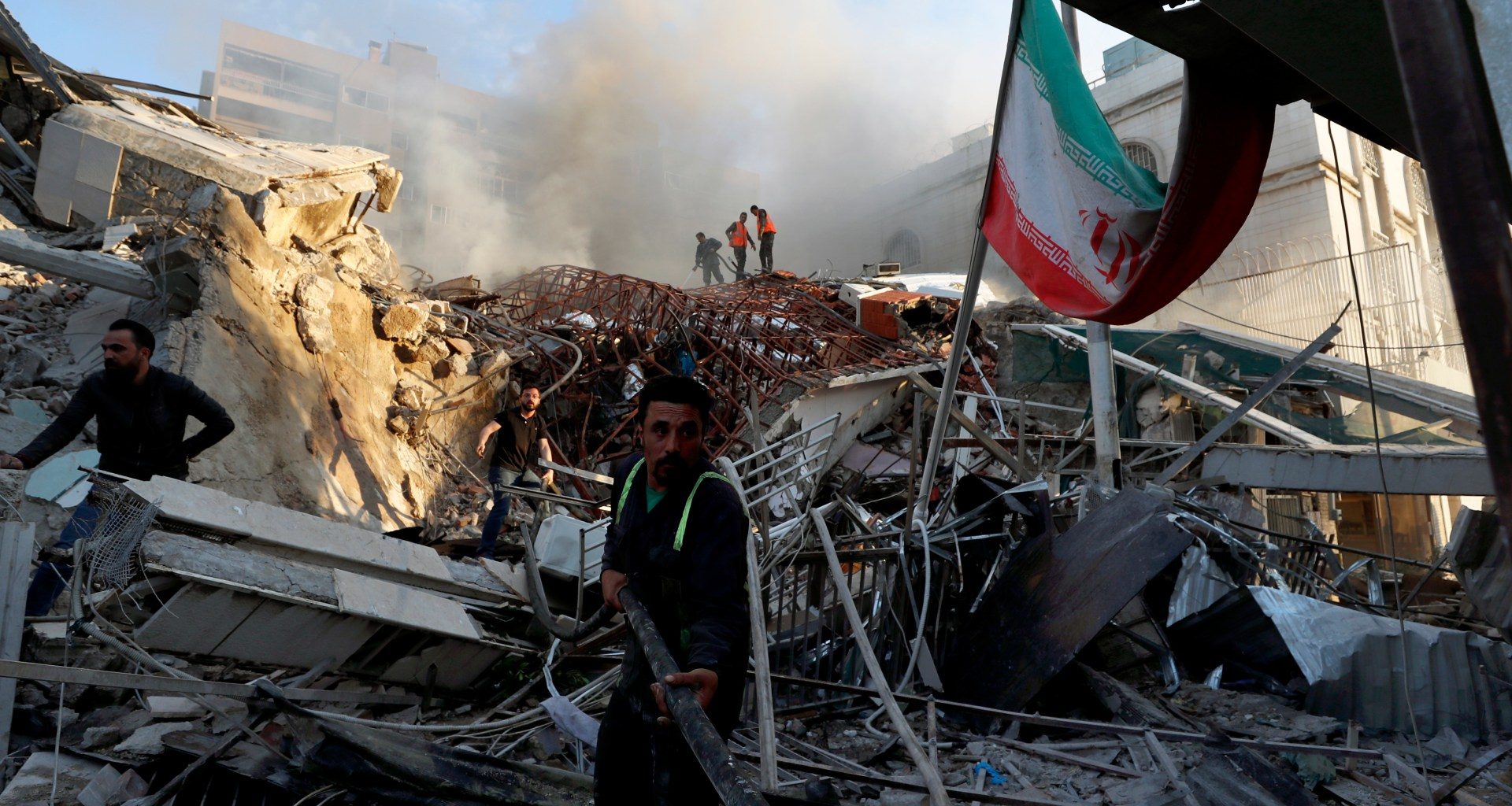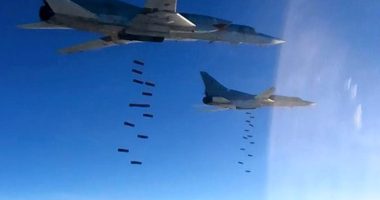
Israeli fighter jets fired missiles at the Iranian embassy in Syria’s capital Damascus earlier this week, killing senior military commanders.
Tehran has said it will retaliate, with experts saying it has options at its disposal with wide-ranging ramifications.
But why does Israel keep launching air strikes on Syria and what will happen next?
When did the attacks start?
The Israeli military has been regularly assaulting Syria for more than a decade, taking advantage of the country’s chaos following its civil war that started in 2011.
The war has largely ended, and years of Iranian and Russian support for the rule of Syrian President Bashar al-Assad have left him in power over most of the country.
But Syria remains torn, with various factions controlling different parts of the country, which provides Israel with an opportunity to launch air strikes. As a Western-sanctioned al-Assad government is faced with US-backed Kurdish forces, opposition forces, Turkish military operations in the north, and ISIL (ISIS), Israel often uses the occupied Golan Heights to launch attacks on Syria and Lebanon – with the al-Assad regime unable to prevent it from doing so.
The attacks have only intensified since 2017 – almost becoming a weekly occurrence – to target rising Iranian and Hezbollah presence and influence in Syria.
Iran, Lebanon’s Hezbollah and Syria are allied against Israel and its key military and financial backer, the United States, along with armed and political groups in Iraq and Yemen in a so-called “axis of resistance”.
Why were the latest attacks important?
Israel has launched two of its largest and deadliest strikes ever against Syria in the past week.
It has significantly increased the frequency and intensity of its attacks since the start of its brutal war on Gaza, freely targeting Iran and its ally Hezbollah in Syria, especially around the capital, Damascus, where there is a stronger presence.
Monday’s air strike completely levelled the building of the Iranian diplomatic mission in Damascus, killing seven members of Iran’s Islamic Revolutionary Guard Corps (IRGC), including two generals who led the elite Quds Force in Syria and Lebanon. Brigadier General Mohammad Reza Zahedi was a key link between the IRGC and Hezbollah, having operated with Hezbollah leaders like Hassan Nasrallah and Imad Mughniyeh, who was assassinated by Israel, for decades.
This was the highest-ranked killing since the assassination of Quds Force commander Major General Qassem Soleimani in an air strike by the US in Iraq in January 2020.
The blow to the IRGC comes after its interests were repeatedly hit in Syria, with a strike in late December killing Razi Mousavi, another top Quds Force commander in Syria.
Just days before the attack on the Iranian consulate, the Israeli military had launched massive strikes on Syria’s northern province of Aleppo, killing at least 40 people, most of them soldiers. The strikes appeared to hit a weapons depot, resulting in a series of large explosions that also killed six fighters belonging to Hezbollah.
Will there be more strikes in Syria?
Ramped-up Israeli air strikes on Syria are poised to continue unimpeded as the war on Gaza – the current main driver of significantly heightened conflicts across the region – shows no immediate signs of stopping despite the deaths of 33,000 Palestinians, and international condemnation.
Air defences deployed by the Syrian military often engage and intercept some of the attacks on the country, but fail to completely thwart them. Russia has strongly condemned the latest Israeli air strikes but has not directly moved to stop them.
Aron Lund, a fellow at US-based think tank Century International, says the bolder Israeli attacks are to some degree a response to likely increased Iranian arms deliveries to Hezbollah via Syria.
“But I think more generally it reflects the Israelis taking the gloves off and putting a lot more effort into degrading Hezbollah and Iran’s logistics,” he told Al Jazeera.
“The attack on the Iranian consulate is part of that pattern of more aggressive Israeli targeting. This was a diplomatic facility in central Damascus and the strike killed very senior Iranian generals.”
Will there be a wider conflict?
Tehran is now under pressure to respond to the latest Israeli attack, but it seeks to balance that with its stated desire throughout the war on Gaza to refrain from expanding the conflict across the region.
Century International’s Lund said an Iranian response could range from hitting an Israeli-linked ship or attacks in Iraqi Kurdistan to targeting Israeli diplomatic missions abroad or more attacks by the resistance axis on Israeli territory – not to mention a direct attack on Israel.
“But there are limits to how much damage Iran can do to Israel, without using tools that could upset the balance of the conflict, invite Israeli counter-escalation, and risk a slide into a wider conflict,” he said.
For instance, a direct attack on Israel by Iran would likely prompt an Israeli attack on Iranian soil, while an escalation through Hezbollah could compound the risks of a regional war, Lund said.
“Iran may also start to put more pressure on US troops in the region, as they have done in the past. It would be a way to do something visible and to incentivise US efforts to restrain Israel. But there are limits to how far they’ll want to go against the Americans,” he said, pointing to attacks on US interests dying down after a major escalation in February.
Yet, Julien Barnes-Dacey, director of the Middle East and North Africa programme at the European Council on Foreign Relations, said the escalation from Israel will make it difficult for Tehran to refrain from more serious and direct retaliation.
“Over recent months, we’ve seen an Iranian desire to keep the situation in check and prevent a broader unravelling and conflict, but Tehran may now feel compelled to respond more forcefully to defend the credibility of its deterrence posture,” he told Al Jazeera.
“Iran is unlikely to put much credence in Western public statements condemning the attack given continued strong backing for Israel, including through the ongoing provision of weaponry that Israel is using in Gaza and the region.”
Read More: World News | Entertainment News | Celeb News
Aljazera







